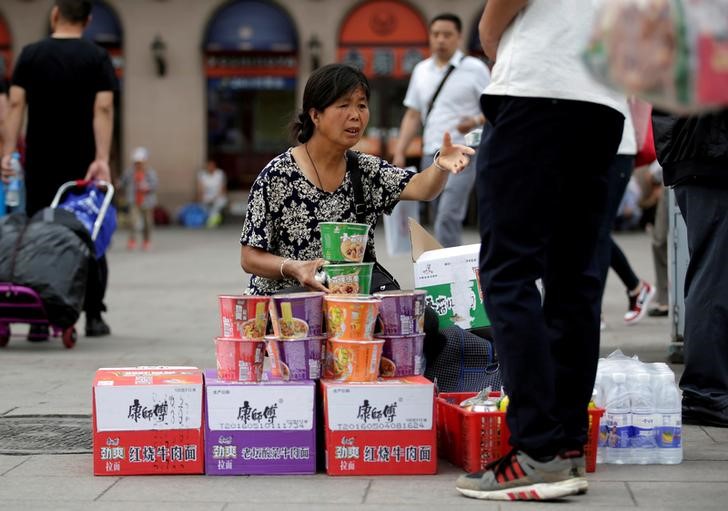(Bloomberg) -- China’s factory-gate inflation accelerated in August to a 13-year high, with commodity prices remaining elevated despite Beijing’s battle to curb gains.
Producer prices rose 9.5% from a year earlier, the National Bureau of Statistics said Thursday, faster than the 9% gain in July. The consumer price index rose 0.8% last month from a year earlier, following a 1% gain in the previous month. Economists surveyed by Bloomberg had predicted both rates would be unchanged.
The rally in commodity prices has been a major driver of factory-gate inflation this year, and even though the government has taken targeted steps to curb the rapid price gains, such as boosting supplies and attempting to cutting back on hoarding, they’ve had limited effect so far.
Business prospects are being affected in different ways by the surge in PPI. Consumer-goods makers and other downstream manufacturers are seeing profits squeezed, while upstream sectors, like raw materials producers, are benefiting.
The People’s Bank of China sees inflation pressure in the economy as controllable, saying last month that the pickup in producer prices in the first half was likely temporary. The economic recovery has also lost steam recently following the outbreak of new virus cases, adding to downward pressure on inflation.
Growth in consumer prices remained subdued in the month, in part because of sluggish consumer spending after authorities imposed restrictions to contain the spread of the delta variant last month. Non-food CPI climbed 1.9% from a year ago.
Pork prices, a key element in China’s CPI basket, continued to fall sharply in the month, resulting in the biggest drop in the food price index since 2017. Core CPI, which strips out volatile items such as food and energy, rose 1.2%.
While muted consumer inflation pressure provides room for more policy support, this week’s strong export data and comments from central bank officials suggest a smaller chance of more easing in the near future, economists say.
©2021 Bloomberg L.P.
